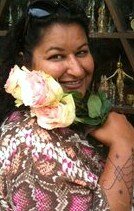 In America today, people of many different faiths and beliefs live side by side. In addition, the vast majority of organizations people give their time and service to are faith-based. The opportunity lies before us to work together to build a society rooted in the values we treasure. Such a society can only be built on a sure foundation of mutual respect, openness and trust. This means finding ways to live our lives of faith with integrity and allowing others to do so, as well. This tip sheet is intended to underscore concepts that are fundamental to the process of stepping out of our proverbial comfort zones and interacting with others from different religious and cultural backgrounds in volunteering and service environments and beyond.
In America today, people of many different faiths and beliefs live side by side. In addition, the vast majority of organizations people give their time and service to are faith-based. The opportunity lies before us to work together to build a society rooted in the values we treasure. Such a society can only be built on a sure foundation of mutual respect, openness and trust. This means finding ways to live our lives of faith with integrity and allowing others to do so, as well. This tip sheet is intended to underscore concepts that are fundamental to the process of stepping out of our proverbial comfort zones and interacting with others from different religious and cultural backgrounds in volunteering and service environments and beyond.
Respecting Boundaries
Our various religious traditions teach us the importance of relationships characterized by honesty, compassion and generosity of spirit. Additionally, our freedom to practice religion, described in the First Amendment to the U.S. Constitution, requires us to exercise good will and good judgment with those of differing faiths. The tips below help to outline boundaries necessary when engaging with those of other faiths:
■ Respect other people’s freedom within the law to express their beliefs and convictions.
■ Learn to understand what others actually believe and value, and let them express this in their own terms.
■ Acknowledge the convictions of others about food, dress, religious practice, and social etiquette, and do not behave in ways that cause needless offense.
■ Recognize that all of us at times fall short of the ideals of our own traditions and, therefore, need to avoid comparing our own ideals with other people’s practices.
■ Work to prevent disagreement from leading to conflict.
Engaging in Dialogue
When we talk about matters of faith with one another, we need to do so with sensitivity, honesty and straightforwardness. These are some pointers for those who seek to engage with those of other faiths in religious dialogue:
■ Recognize that listening as well as speaking is necessary for a genuine conversation.
■ Be honest about personal beliefs and religious allegiances.
■ Do not misrepresent or disparage other people’s beliefs and practices.
■ Whenever we come across them, correct misunderstanding or misrepresentations not only of our own beliefs, but also those of other faiths.
■ Be straightforward about our intentions.
■ Accept that in formal interfaith meetings there is a particular responsibility to ensure that the religious commitment of all those who are present is respected.



